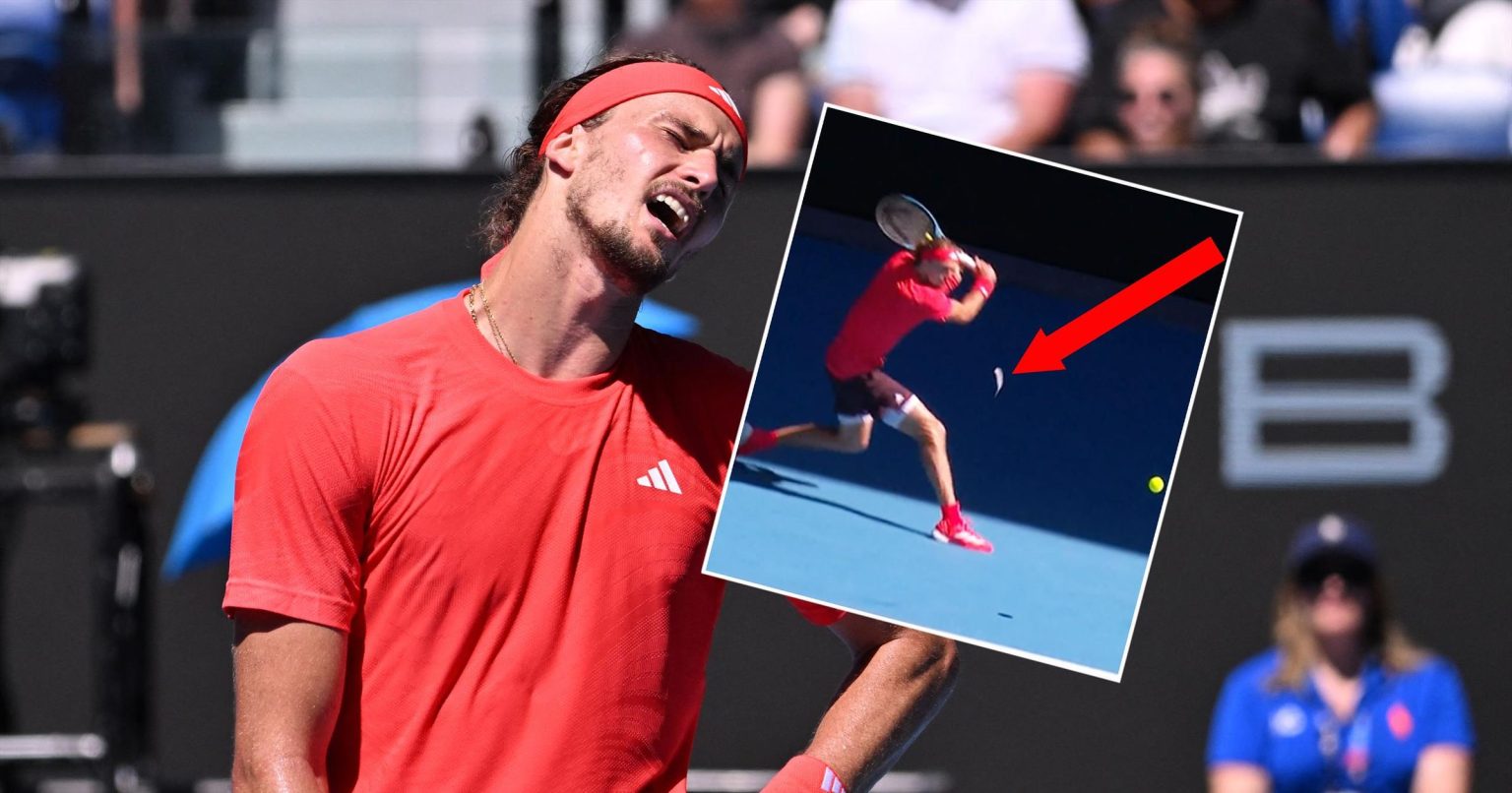The quarter-final match between Alexander Zverev and Tommy Paul at the Australian Open saw a bizarre interruption when a feather fluttering onto the court mid-rally caused the umpire to call a let. This seemingly innocuous event sparked a heated exchange between Zverev and the chair umpire, Nacho Forcadell, highlighting the nuances of tennis rules and the pressures of high-stakes competition. The incident occurred in the second set with Paul serving at 4-2 and deuce. As the rally progressed, a feather drifted down towards the playing surface. Just as Zverev prepared to strike a backhand, Forcadell called a let, much to the German player’s astonishment and frustration.
Zverev’s incredulity was palpable. He questioned the umpire’s decision, arguing that a feather was hardly a significant obstruction, especially given the presence of numerous other feathers on the court. He pointed to other feathers scattered around, emphasizing the seeming triviality of halting play for a single, lightweight feather. His exasperation was understandable. He was deeply invested in the point, recognizing its potential impact on the set and the match as a whole. A break of serve at that juncture could have significantly altered the momentum of the match.
The commentary team, including Miles Maclagan and Chris Bradnam, acknowledged the unusual nature of the interruption and expressed sympathy for Zverev. Maclagan pointed out that Zverev was actively engaged in the rally when the let was called, making the interruption even more disruptive. Bradnam humorously alluded to Rufus, the hawk employed at Wimbledon to deter pigeons, suggesting that a similar avian solution might be needed at the Australian Open. The incident recalled a previous occasion where a feather had caused a disruption in a tennis match, highlighting the recurring nature of such seemingly minor, yet potentially impactful events.
The umpire, Forcadell, attempted to explain the rationale behind his decision, citing the rule that dictates a let must be called if an object falls onto the court during a point. However, Zverev remained unconvinced, arguing that the feather presented no real impediment to the ongoing rally. He maintained that the feather’s presence had no influence on the trajectory of the ball or the players’ movements, making the interruption unnecessary. The debate underscored the delicate balance between upholding the rules of the game and maintaining the flow and intensity of a competitive match.
Despite the momentary disruption and Zverev’s understandable frustration, the feather incident ultimately had no bearing on the final outcome of the match. Zverev, after losing the argument with the umpire, regained his composure and went on to win the second set, turning the tables on Paul. He eventually secured victory in four sets, demonstrating his resilience and ability to overcome distractions. The scoreline of 7-6(1) 7-6(0) 2-6 6-1 reflected the closely contested nature of the first two sets and Zverev’s dominance in the final set.
With his victory over Paul, Zverev advanced to the semi-finals of the Australian Open, where he awaited the winner of the highly anticipated clash between Novak Djokovic and Carlos Alcaraz. The prospect of facing either of these formidable opponents presented a significant challenge, but Zverev’s performance against Paul demonstrated his form and determination, setting the stage for a compelling semi-final encounter. The feather incident, though a curious footnote in the match, served to highlight the unpredictable nature of live sport and the sometimes contentious application of rules under pressure. It also underscored Zverev’s ability to remain focused and deliver a strong performance despite unforeseen interruptions.


